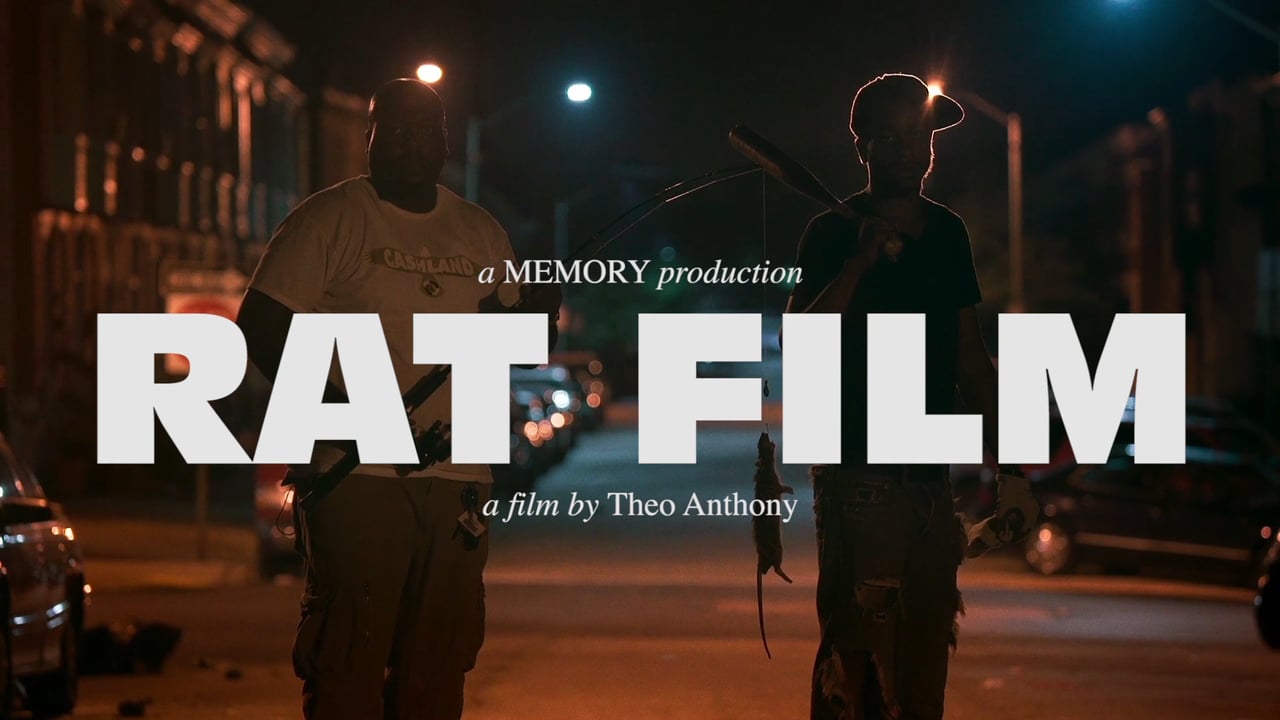Check out the posted video of this discussion here.
On Tuesday, February 13th, The Urban Democracy Lab at NYU Gallatin screened “RAT FILM,” a documentary film that chronicles the extent of the “rat issue” in Baltimore, Maryland. RAT FILM focuses on the history of disparate and discriminatory housing policies in Baltimore through the agent of the rat. Filmmaker Theo Anthony was present at the screening and spoke to his wanting to learn more about his home city, and deciding to use the rat as a storytelling lens to explore themes of race and environmental hazards in housing. The screening was followed by a panel discussion between filmmaker, photographer and writer Theo Anthony and Paige Glotzer, a Prize Fellow in Economics History and Politics at Harvard University in addition to a Q&A session with audience members. Conversation between Anthony and Glotzer oscillated between histories of “urban renewal” and the impact which mid 20th century city planning had on the current layout and experiences of communities within Baltimore.
The conversation between Anthony and Glotzer held a philosophical yet informal tone, consistently engaging with the question of what role/responsibility documentary film possesses as a means to lend visibility to oft quieted or wholly untold narratives. While Anthony’s motivation towards exploring Baltimore’s history of urban policy stemmed from an affinity toward his hometown, Glotzer was drawn towards a study of Baltimore as a Ph.D student at Johns Hopkins University.
During the Anthony came to using the rat as a frame of the film by accident. The film opens with a scene shot on a cell-phone of a rat attempting to escape from a garbage can, scratching and puttering about in its cylindrical prison. Dramatic music aids the rodent’s probable frustration and anxiety.
RAT FILM explores the history of racial oppression in Baltimore. Urban planners devalued the lives and neighborhoods of black people. In the early 20th century, these neighborhoods were “redlined,” meaning banks deprived the residents and businesses of these neighborhoods of necessary lending, based on a racist assessment of the area’s black residents.
Paige Glotzer’s research focuses on “political economy, cultural history and the spatial construction of difference.” The academic moment that inspired her to pursue the history of city construction came in the unearthing of a correspondence between Baltimore city planners and their lawyers. Within this written interaction the city planners wrote to their lawyers asking if racialized zoning was legal, to which the lawyers responded “no.”
Regardless of the illegality, the city of Baltimore was zoned along racial lines, “red-lining” communities of color and denying them both the access to a plethora of resources or the ability to leave these communities.
Anthony and Glotzers’ varying approaches made for an interesting conversational go-between where passions and expertise circulated, touching on the merit of documentary film as a means to expose and engage with the intersectional issue of historic zoning policies and the urban issues which overwhelmingly effect communities of color.
This event was presented as a part of Gallatin’s consortium of Black History Month events.

